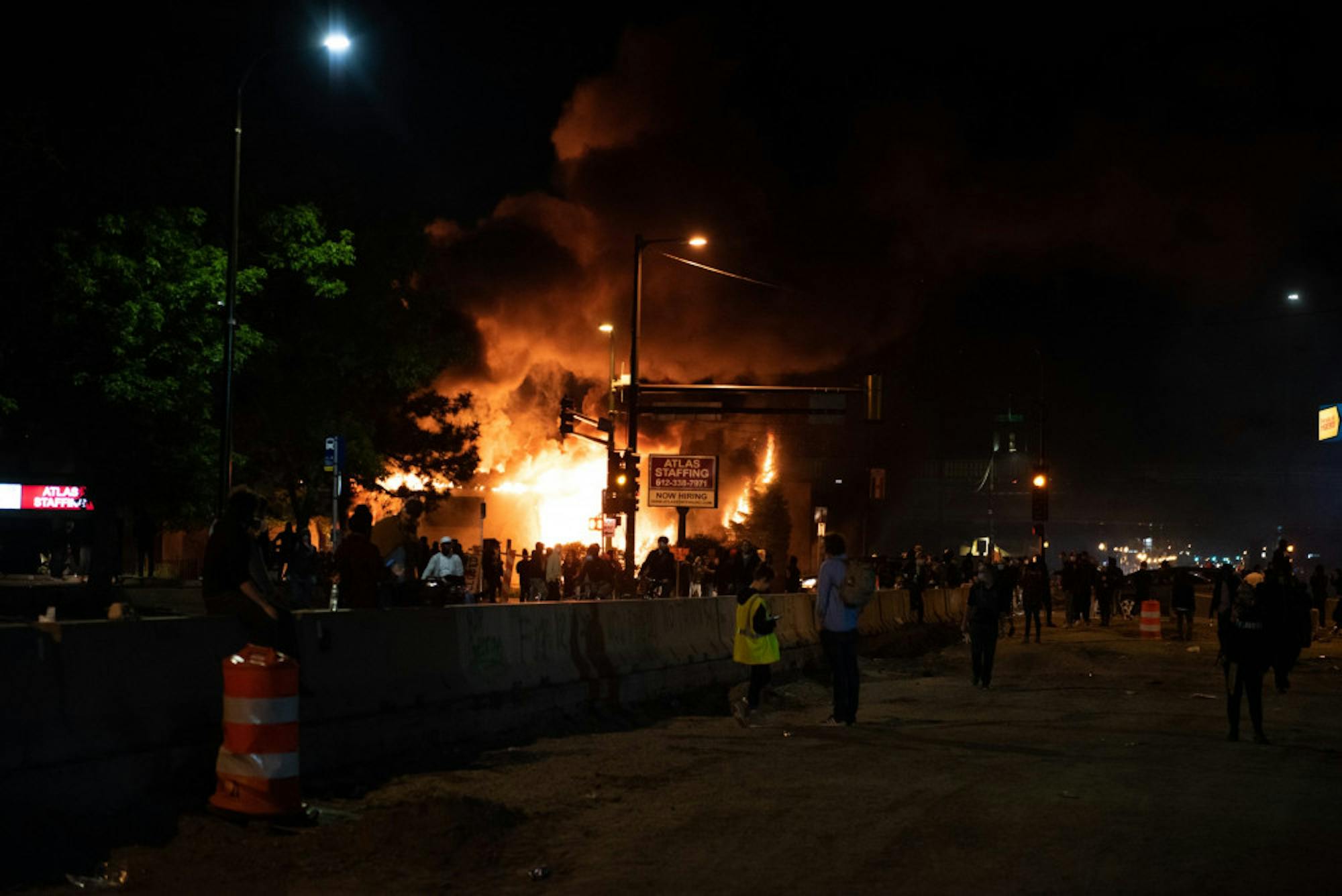John Brown, the Sons of Liberty, race riots. Whether we like it or not, American history is inseparable from the political violence that has shaped it. The riots in Minneapolis over George Floyd’s death at the hands of a police officer, to whom he posed no threat, are only the most recent examples of unrest in our 400-year-long history of racial tension.
The protests in Minneapolis, and nationwide, are undeniably justified. Natural law dictates that everyone has the right to pursue their own self-interest, and agitation for civil reform by imposing costs on one's government certainly satisfies that condition. If the people of Minneapolis believe that violence is a path to improve their conditions, then it is only reasonable for them to take that path. But whether these demonstrations are necessarily positive is a separate question, as legitimacy does not necessarily imply desirable outcomes.
As far as Thomas Hobbes was concerned, the ability to determine what course of action best suits one’s desires is a natural right. While laws and conventions do impose costs on certain actions, they can never outright prevent them. For this reason, if a group’s expected benefits from violating the law outweigh the costs of its members’ likely arrest and prosecution, the group has no logical reason to not break the law. Political violence, then, is legitimate as long as the perpetrators are acting in accordance with their own rational self-interest. This condition applies to the riots in Minneapolis and to just about every other instance of unrest in U.S. history. My concern, however, is whether these legitimate acts will ultimately harm the economic, social and physical well-being of the people of Minneapolis.
When examining similar, past acts of political violence, it’s unclear if these demonstrations will improve conditions for black individuals. The 1992 riots in Los Angeles produced meaningful reform within the Los Angeles Police Department in such a way that a majority of the city’s residents, African Americans included, now support the department. The protestors therefore benefited overall, as the riots’ short term economic impact on their lives was outweighed by a preferred policy outcome.
On the other side of this coin are the more recent protests sparked by the killing of Michael Brown Jr. in Ferguson, Missouri. No meaningful change occurred in the wake of the unrest first sparked in Ferguson. Now, many cities, Ferguson included, face financial insecurity — the costs of which their citizens bear. In this case, violence generally left the people of Ferguson worse off; justifiable actions do not necessarily benefit the communities they are intended to serve. While such acts brought minority issues into the public eye, it's difficult to quantify whether this visibility resulted in the beneficial change that activists sought to advance.

Whether the protestors manage to force the police departments of St. Paul, Minnesota, and Minneapolis to reform, or cause millions in economic damage and destroy livelihoods for essentially nothing, remains to be seen. However, it is in the interests of all free people to defend their acts.
The rioters may not be the only ones bringing violence to the streets of Minneapolis. In a since-flagged tweet, President Donald Trump threatened to use deadly force to combat looting. As political violence conducted by citizens against oppressive institutions is, in principle, legitimate, state-sanctioned violence in response to rioters is legitimate as well. This may seem counterintuitive, as these institutions stand for the very things legitimate protestors seek to destroy. However, there exists a commonality — both parties fight for what they believe to be in their own interest.
Oftentimes, the government will use force because they view the status quo as preferable to whatever aim pursued by dissenters; just as dissenters view their aims as preferable to the status quo. Most Americans subconsciously agree with this idea. After all, the police use coercive force to uphold the law, which is a near-textbook example of political violence, and the majority of white and Hispanic Americans likely agree that the police should exist in some capacity, though African Americans have substantial reservations regarding police power.
While most may agree that government violence is, in principle, legitimate, what about Trump’s threat? The government has the same right to use force as a means to pursue its ends as any other free American does. But just because they can does not mean they should. If Trump and other officials can quell the unrest in the Twin Cities in a way that the gains from doing so are greater than overall human costs, his threats would be justified. If he is unable to do this, it will reflect poorly on him and his actions, though not their legitimacy. Not only is it within the legal power of government to use force in this way, but there’s a logical imperative to defend their interests by any means necessary.
Force ultimately makes the world go round; violence in the political sphere is an integral part of human interaction and to universally condemn or condone it is irresponsible. As Hobbes so eloquently stated, “every man ought to endeavor peace, as far as he has hope of obtaining it, and when he cannot obtain it, that he may seek and use all helps and advantages of war.” Let’s take his advice.
Robert Schmad (23C) is from Kennewick, Washington.





